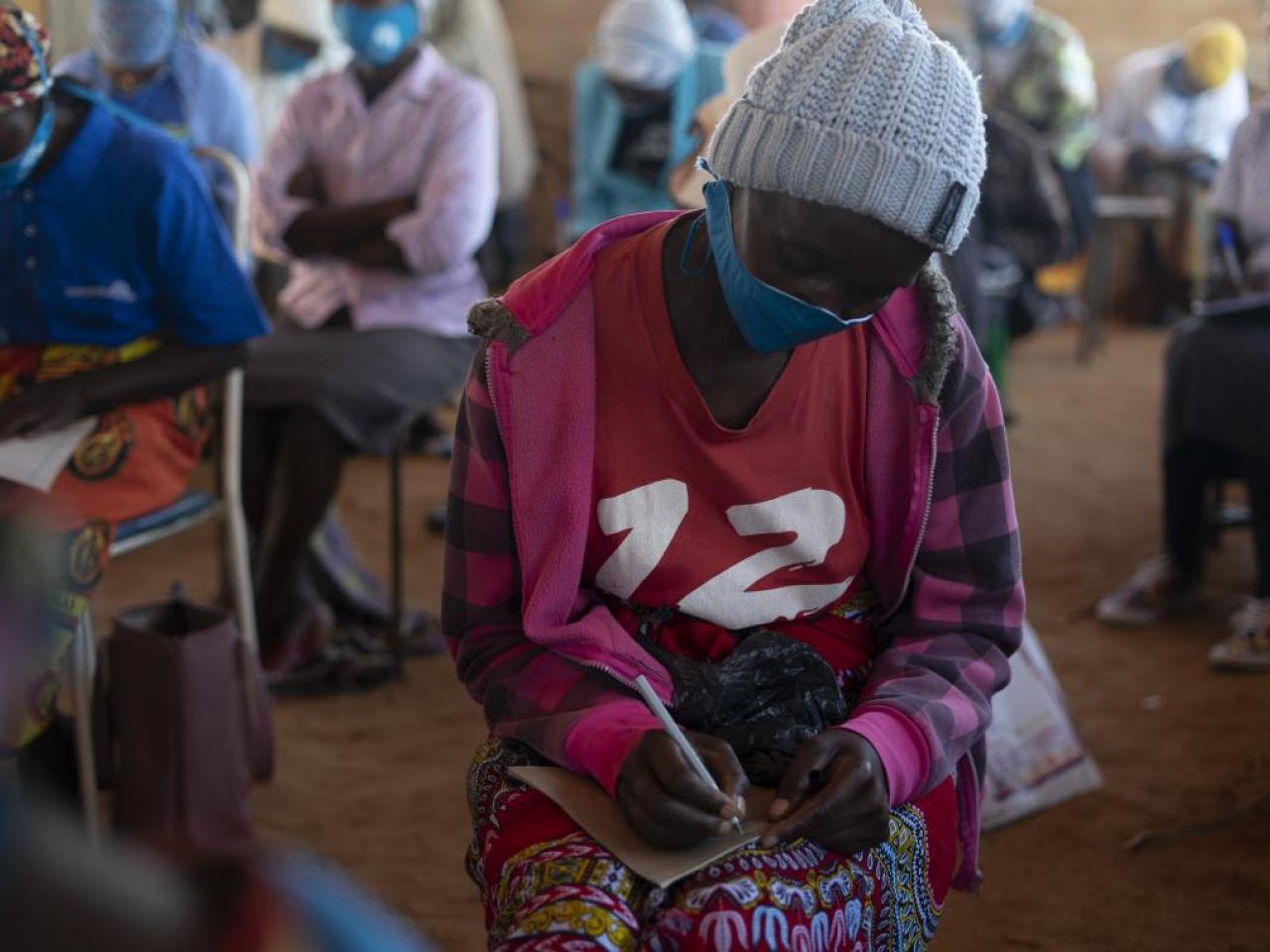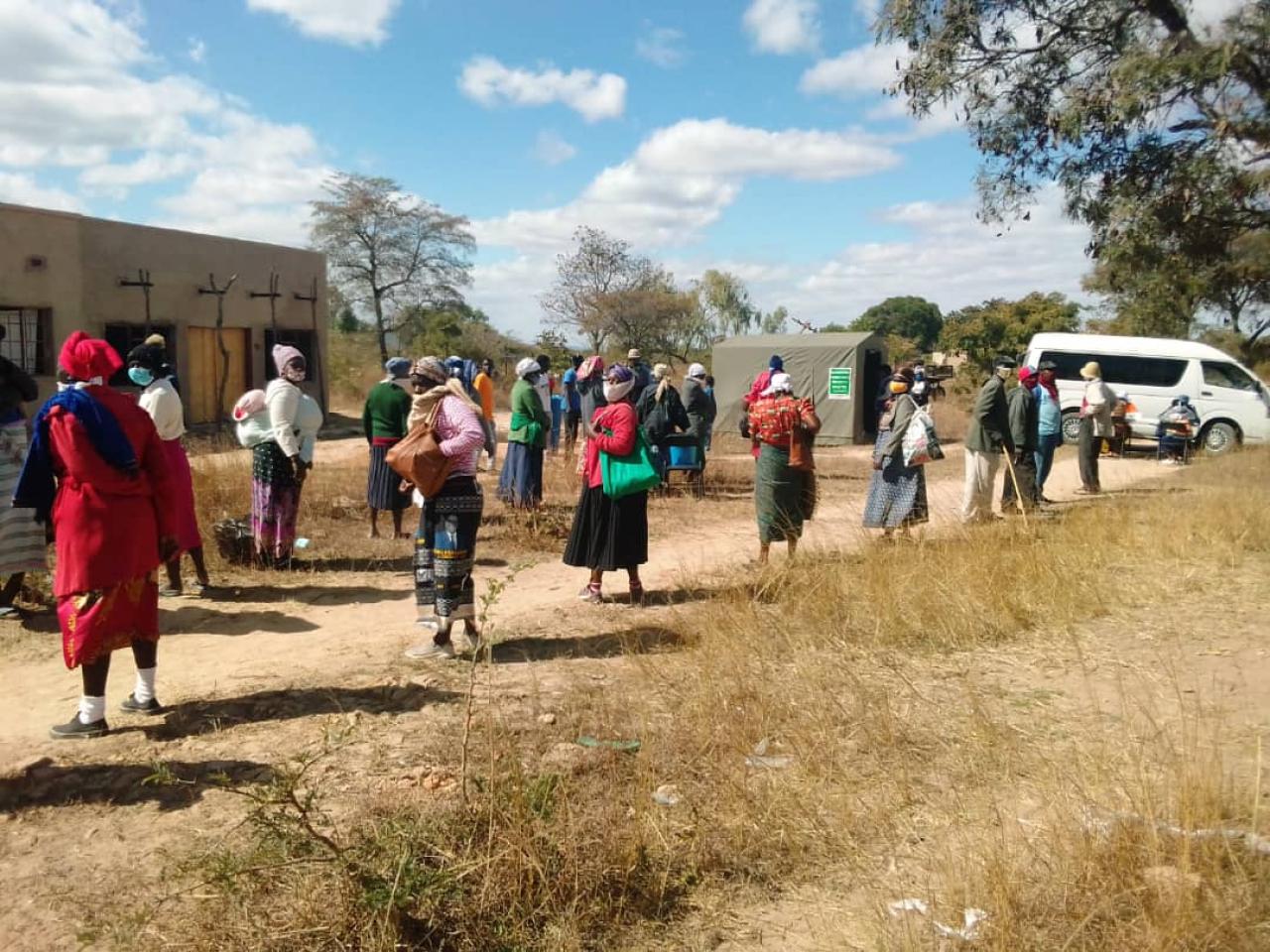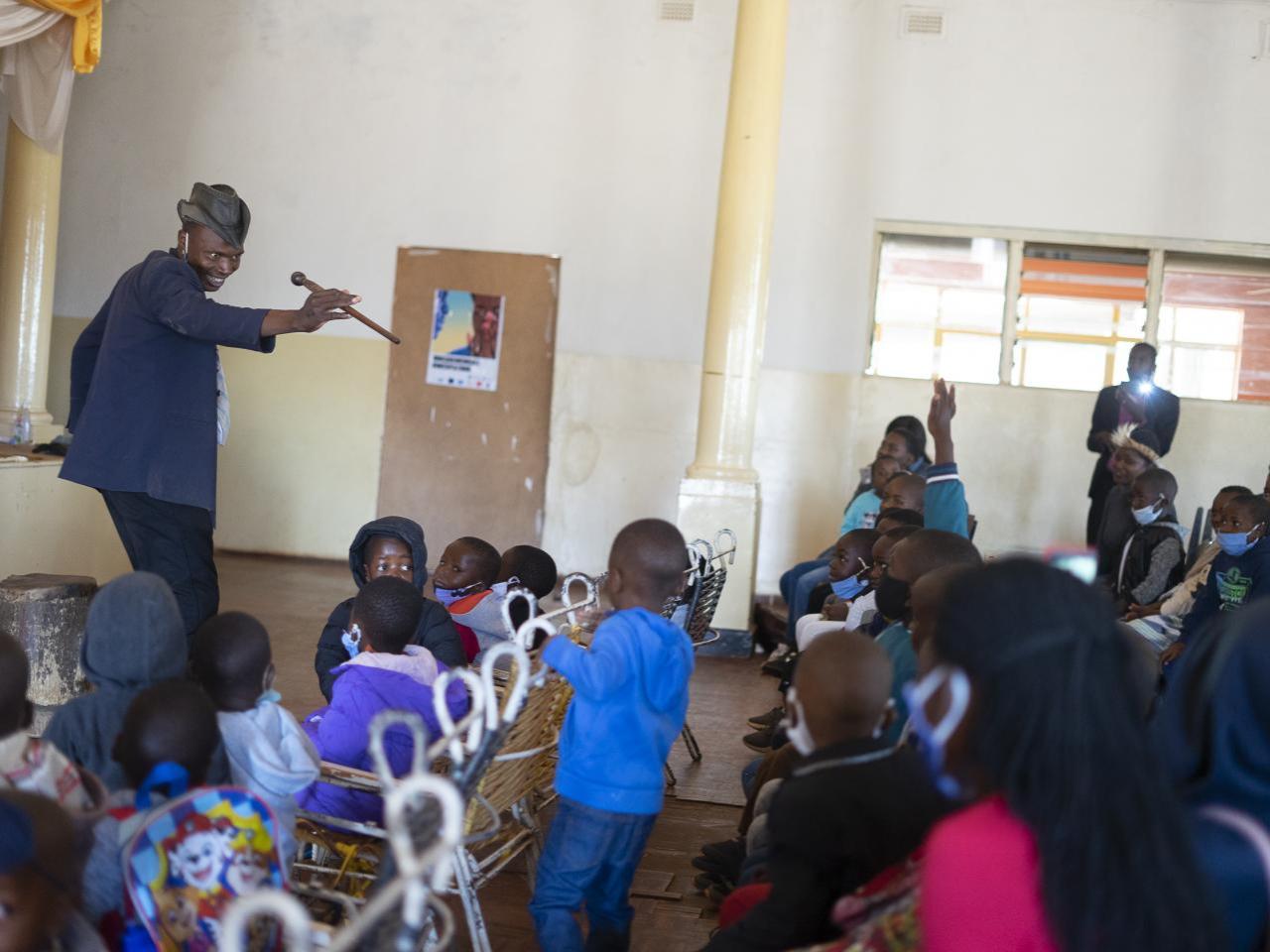A 'game-changer' for women and girls: In Zimbabwe, DNA testing revives hope for justice in sexual violence cases

HARARE, Zimbabwe - In Zimbabwe, one in three women and girls will experience physical, sexual or gender-based violence (SGBV) in her lifetime. Yet, only 4 per cent of women will report it to the police. Due to stigma or fear, rape and sexual violence are especially under-reported.
Even when survivors do report, they often face multiple barriers to justice. Lack of access to critical services, delayed reporting and insufficient evidence to convict are just some of the reasons why perpetrators of sexual violence may walk free.
In Zimbabwe, the Spotlight Initiative is working to hold perpetrators of sexual violence accountable by improving the capacity of police, health and justice personnel to collect, analyze and present forensic evidence in SGBV cases. This includes the funding of a new machine and chemicals that will allow Zimbabwe’s Forensic Science Laboratory Unit to conduct DNA testing - an often critical part of prosecuting sexual and gender-based violence offenders.
“We currently have more than 1,000 sexual assault kits that have not been processed and analyzed because the Forensic Science Lab did not have DNA equipment to analyze these kits,” says Assistant Commissioner Dr. Tapiwa Nyamukure, the Chief Forensic Scientist in the Zimbabwe Republic Police (ZRP) Forensic Science Laboratory Unit. “The [new] machine can process up to about 40 cases per day, so we will be able to handle this [backlog] more quickly.”
"DNA can be used in sexual and gender-based violence cases as a silent witness… It can be used to accurately identify and convict a perpetrator.” - Chief Forensic Scientist Dr. Tapiwa Nyamukure
DNA testing - a critical link
As sexual violence often happens in private, DNA evidence provides crucial support to a survivor’s testimony or witness statement in court.
“Forensic evidence is evidence that’s collected at the crime scene and is used in court to bring truth to the trial,” says UNICEF Child Justice and Legal Reform Officer Dr. Sabine Witting. “It can be found at any crime scene, the most important of which is the victim’s body when it comes to sexual and gender-based violence. DNA evidence can be found in the form of semen, blood, hair or debris under the victim’s fingernails.”
Dr. Nyamukure elaborates. “DNA can be used in SGBV cases as a silent witness… Every person has a unique DNA profile, so it can be used to accurately identify and convict a perpetrator.”
In Zimbabwe, survivors of sexual and gender-based violence are encouraged to report their cases within 72 hours to the nearest clinic or hospital, where they will receive a medical examination. This ensures that the survivor can get pregnancy and STI tests done in a timely manner, and receive any necessary medication, such as HIV prophylaxis and emergency contraception.
However, 72 hours after an assault is often too late to collect DNA samples. Because of their volatile nature, DNA needs to be collected before the survivor has taken a bath or shower.
“A key issue is that survivors are reporting late because they don’t know about these services or they face barriers to access, like no transportation,” says Communications Officer at Adult Rape Clinic Floridah Mapeto. “Through support from Spotlight Initiative, we are working on raising more awareness and seeing how we can address barriers that SGBV survivors face to encourage more timely reporting.”
“Strengthening the forensic system in Zimbabwe will be a big gamechanger for women and girls who fall victim to sexual offences.” - UNICEF Child Justice and Legal Reform Officer Dr. Sabine Witting
Supporting survivors beyond the trial
While forensic evidence is a critical piece of the puzzle in solving SGBV cases, it’s equally important to ensure survivors of sexual violence feel safe reporting their case in the first place.
Spotlight Initiative is supporting the Zimbabwe Republic Police Victim Friendly Unit (VFU) to train officers on how to provide a safe space for SGBV survivors to share their experiences.
“The Victim Friendly Unit trains officers to handle vulnerable witnesses when they report to the police station,” says Chief Superintendent Jessie Banda, the Staff Officer of the ZRP VFU. “They are often scared, they are traumatized and they need to be handled with care.”
So far, 38 VFU officers have learned about gender-sensitive investigation, including forensic evidence collection and management.
“This is only the beginning,” says Dr. Witting. “The strengthening of the forensic system in Zimbabwe will be a big gamechanger for women and girls in the country who fall victim to sexual offences.”
“We are ready to bring perpetrators to book,” says the Officer in Charge of the ZRP Forensic Science Laboratory Unit Inspector Mushove. “By seeing that justice prevails, we want to put smiles on the faces of survivors of sexual violence and give them an opportunity to heal from their trauma.”
By Ruvimbo Mushavi



